Lokpal Bill Passed, Statute Amendment Bill Defeated In Lok Sabha
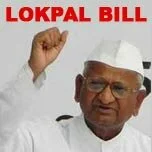 After failed moves over the past 43 years, Lok Sabha tonight passed a historic bill to create a nine-member anti-corruption watchdog Lokpal after a marathon debate but the government suffered a major embarrassment when the legislation to give it a Constitutional status was defeated for want of requisite two-third majority.
After failed moves over the past 43 years, Lok Sabha tonight passed a historic bill to create a nine-member anti-corruption watchdog Lokpal after a marathon debate but the government suffered a major embarrassment when the legislation to give it a Constitutional status was defeated for want of requisite two-third majority.
Official amendments were carried out to The Lokpal and Lokayukta Bill, 2011, giving the option to states to set up Lokayukta and leaving armed forces and Coast Guard out of its purview.
The Constitution Amendment Bill, an idea of Rahul Gandhi to give Constitutional status to Lokpal and Lokayukta, was also favoured by the Standing Committee which considered the bill.
The Treasury Benches, including Prime Minister Manmohan Singh, Leader of the House Pranab Mukherjee and UPA Chairperson Sonia Gandhi, looked glum when the Leader of Opposition Sushma Swaraj raised the issue that the voting on the clauses of bill did not have the required special majority.
A Constitution Amendment Bill to be passed should have more than 50 per cent of the members of the House present and of them, two-third support is mandatory.
The House witnessed high drama as voting on the three clauses showed that the ruling side had failed to get the required number of 273 in favour, prompting Speaker Meira Kumar to drop the clauses from the bill.
“Since the clauses have not been incorporated, the motion for adoption of the bill becomes infructuous,” the Speaker said.
An angry Mukherjee termed the development as “a sad day for democracy”, blamed the Opposition especially BJP for the fiasco and warned them that “people will teach you a lesson”.
On the Clause two, 247 voted in favour and 178 against, while in Clause three 251 were in favour and 179 against. Clause one received 250 and 180 against.
The Lokpal Bill about which parties across the spectrum, the opposition—right and the left—and allies and supporters of the government, had some objection or other was passed by a voice vote.
The House also passed the Protection to Persons Making Disclosures Bill, 2011 aimed at protecting whistle-blowers.
Heeding to demands from the Opposition, allies and supporting parties, the government brought in as many as ten amendments, including the one that gives the option to states to form a Lokayukta.
The other amendments in the Lokpal bill included keeping out defence forces and changing the requirement of three-fouth of Lokpal members to approve an enquiry against the Prime Minister to two-third.
All the opposition amendments, including the ones that sought to bring in corporates and media and reservation for minorities were rejected.
One of the amendments moved by CPI(M) leader Basudev Acharia on inclusion of corporates was defeated by 247 to 69 votes while another opposition amendment was lost 247 to 189.
While SP and BSP members walked out before voting, non-NDA opposition, including the Left parties, BJD and AIADMK, made a brief walk out after the passage of the bill before returning to the House for participating on the Constitution Amendment Bill.
The government also moved an amendment increasing the exemption time of former MPs from five to seven years but a number of amendments moved by Opposition, including seeking to bring corporates, media and NGOs receiving donations under Lokpal, were defeated.
The defeat of the Constitution (Amendment) Bill came mainly because the parties supporting the UPA from outside Samajwadi Party (22), BSP (16) and RJD (4) staged a walkout, bringing the numbers down for the government.
During the animated over 10-hour debate, Prime Minister Manmohan Singh asked parties to “rise above partisan politics” to demonstrate to the people of the country that “this House means business” in its effort to combat corruption.
He said a “holistic” approach was needed to deal with the “cancer” of corruption but rejected demands for bringing CBI under the purview of Lokpal as he warned that no entity should be created inconsistent with the Constitutional framework.
Capping the debate during which several parties, including BJP, BJD, JDU, RJD, SP, TDP and Left said the bill was weak and wanted it withdrawn, Mukherjee rejected the contention that the legislation had been brought in “haste” or under pressure.
Allaying fears of several parties, including UPA constituents Trinamool and DMK, that the provision for setting up Lokayuktas was an “attack” on federal structure, he said the government had made amendments stating that notification would not be issue without the consent of state governments.
The amendment, along with some others, was decided during an emergency meeting the Prime Minister held with party chief Sonia Gandhi and other senior leaders ahead of the voting in view of opposition by allies.
This is the ninth Lokpal Bill introduced in government in a series that started as early as 1968 and ended in 2001. Seven of them lapsed with the dissolution of the Lok Sabha while one was withdrawn.
“There are some very special moments in the life of a nation. This is one such moment. The nation awaits with bated breath how the collective wisdom of this House will be reflected in the vote at the end of the debate on the Lokpal and Lokayuktas Bill, 2011,” Singh said.
Noting that the broad provisions of this Bill have been vigorously debated both in the public domain and by political parties, he underlined that the task of legislation was “very serious business and must eventually be performed by all of us who have been constitutionally assigned this duty.”
In an apparent message to Hazare who has been pressing his demands with regard to Lokpal, Singh said, “others can persuade and have their voices heard. But the decision must rest with us.”
He warned that “no entity should be created inconsistent with our constitutional framework and charged with onerous executive responsibilities without any accountability… Let us not create something that will destroy all that we cherish – all in the name of combating corruption. Let us remember that the road to hell is paved with good intentions.”
He said, “today we are given to believe that a Government that is directly elected by the people and accountable to it cannot be trusted but a body that will not derive its legitimacy from the people directly or be accountable to it could be trusted to wield its immense powers with honour and trust.”
Source from www.indiatvnews.com
No related posts.













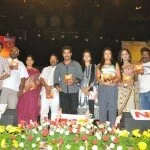


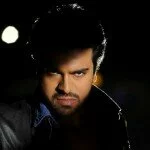








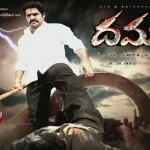

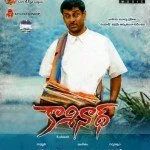

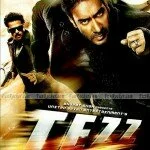
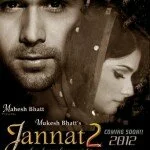










Comments (0)
Trackback URL | Comments RSS Feed
There are no comments yet. Why not be the first to speak your mind.